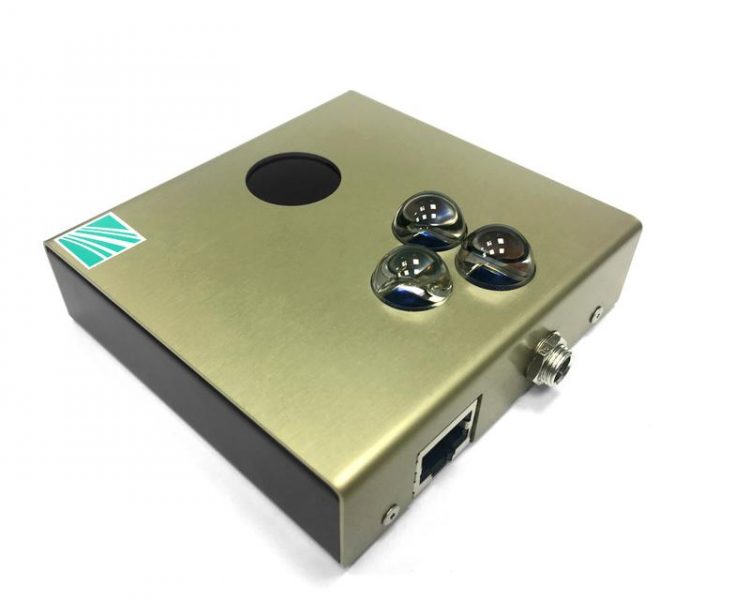Fraunhofer HHI presents the latest Li-Fi research at the first Global LiFi Congress in Paris

© Fraunhofer HHI
Fraunhofer HHI scientists will present their latest research results at the Global LiFi Congress from three pilot installations in a variety of application areas: Industrial Manufacturing, Conference Room and Backhaul for Mobile Communications Antennas.
They will also be reporting on the current status of Li-Fi standardization. At the Fraunhofer HHI's Stand 17, interested visitors will be able to see the latest Li-Fi modules, featuring among other things multi-user access, reduced energy consumption and smaller form factor.
Li-Fi, also referred to as Visible Light Communication (VLC), is an alternative to conventional Wi-Fi technologies.
VLC data transmission is also wireless, but uses modulated light produced e.g. by LED lighting sources instead of radio waves. Among the advantages of VLC are the robustness against radio waves and electromagnetic fields.
Li-Fi also provides additional spectrum for crowded radio networks and is less susceptible to interference.
The Global LiFi Congress provides an overview on the topical areas of Li-Fi and demonstrates the sector's challenges and developments.
Academic conferences and round-table discussions will give representatives from science and business the chance to share their visions with regard to Li-Fi innovations and applications.
More information is available at: https://www.lificongress.com/index.php?idedition=1.
https://www.hhi.fraunhofer.de/en/press-media/press-releases.html
Media Contact
All latest news from the category: Event News
Newest articles

Sea slugs inspire highly stretchable biomedical sensor
USC Viterbi School of Engineering researcher Hangbo Zhao presents findings on highly stretchable and customizable microneedles for application in fields including neuroscience, tissue engineering, and wearable bioelectronics. The revolution in…

Twisting and binding matter waves with photons in a cavity
Precisely measuring the energy states of individual atoms has been a historical challenge for physicists due to atomic recoil. When an atom interacts with a photon, the atom “recoils” in…

Nanotubes, nanoparticles, and antibodies detect tiny amounts of fentanyl
New sensor is six orders of magnitude more sensitive than the next best thing. A research team at Pitt led by Alexander Star, a chemistry professor in the Kenneth P. Dietrich…





















